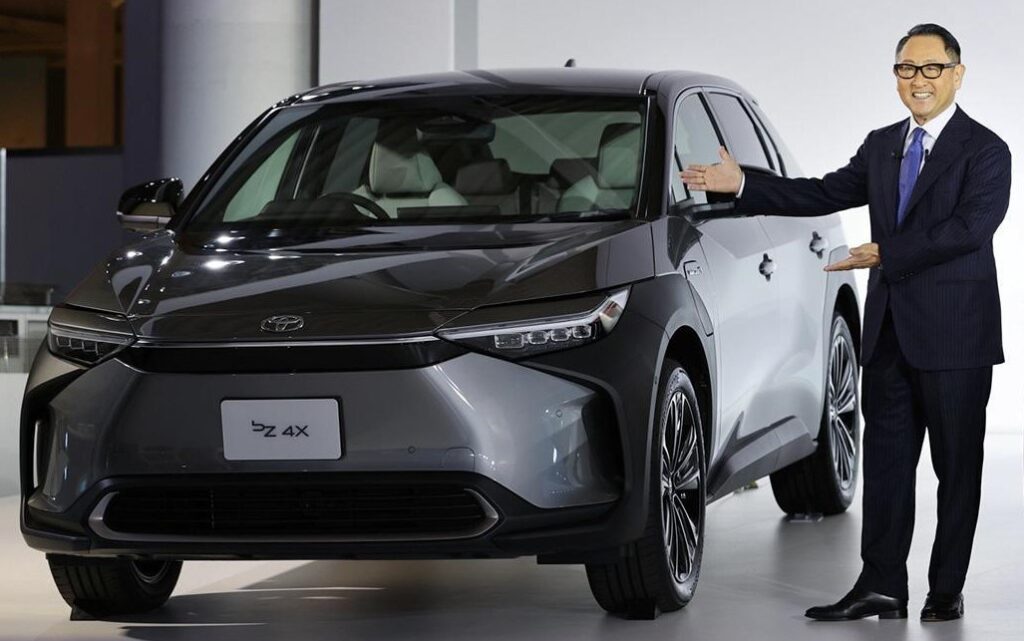Public pensions and proxy advisers try to punish the company using corporate governance as a pretext
By The Editorial Board
It wasn’t long ago that Toyota’s hybrid vehicles were all the rage with the climate-change left. Now progressive investors and government pension funds are targeting the Prius manufacturer in a proxy campaign because it has questioned the climate lobby’s electric-vehicle orthodoxy.
Toyota discloses its CO2 emissions and has pledged to make all its vehicles carbon neutral by 2050. This should please the climate crowd. Yet progressive investors are seeking to oust Chairman Akio Toyoda and are pushing a resolution at its June 14 shareholder meeting to make the world’s largest auto maker disclose its climate-related lobbying.
News reports say the California Public Employees’ Retirement System (Calpers) and New York City’s public-worker pension funds have voted against Mr. Toyoda’s re-election, and the proxy advisory firm Glass Lewis has recommended that shareholders do so as well. They say Mr. Toyoda deserves the boot because Toyota’s board isn’t sufficiently independent of management.

But Toyota’s corporate governance model is old news. The sudden concern suggests it is merely a pretext for punishing Mr. Toyoda for the heresy of doubting the West’s hell-bent EV transition. He made news in December when he claimed that a “silent majority” in the auto industry “is wondering whether EVs are really OK to have as a single option. But they think it’s the trend so they can’t speak out loudly.”
He also emphasized that battery-powered EVs “are not the only way to achieve the world’s carbon neutrality goals.” Toyota is promoting its hybrids and plug-in hybrids as alternatives to battery-powered EVs. Plug-in hybrids contain an internal combustion engine that can kick in when the battery runs low, which alleviates range anxiety. They are also cheaper than EVs.
A Toyota memo to auto dealers in April explained the challenges to full electrification. For instance, “most public chargers can take anywhere from 8-30 hours to charge. To meet the federal [zero-emissions vehicle] sales targets, 1.2M public chargers are needed by 2030. That amounts to approximately 400 new chargers per day.” The U.S. isn’t close to meeting that goal.
Toyota also noted that “more than 300 new lithium, cobalt, nickel and graphite mines are needed to meet the expected battery demand by 2035,” and they could take decades to develop. “The amount of raw materials in one long-range battery electric vehicle could instead be used to make 6 plug-in hybrid electric vehicles or 90 hybrid electric vehicles.”
And here’s an even more striking statistic: “The overall carbon reduction of those 90 hybrids over their lifetimes is 37 times as much as a single battery electric vehicle.” These inconvenient truths undermine the climate religion and government mandates.
Speaking of which, progressives have attacked Toyota for lobbying against aggressive EV mandates. Toyota backed the Trump Administration’s lawsuit against California’s stringent emissions rules. It also pressed West Virginia Sen. Joe Manchin to oppose a $4,500 tax credit bonus for union-made EVs. Toyota isn’t unionized and has a large plant in West Virginia.
The shareholder campaign against Toyota shows how public pension funds and the proxy advisory duopooly of Glass Lewis and Institutional Shareholder Services (ISS) work in concert to exploit corporate governance to push progressive political goals. ISS, Calpers and New York city’s pension funds have all backed the shareholder resolution calling on Toyota to disclose its climate-related lobbying.
Mr. Toyoda deserves support for speaking the truth about EVs, and it’s a shame he’s the only auto leader with the courage to do it.


